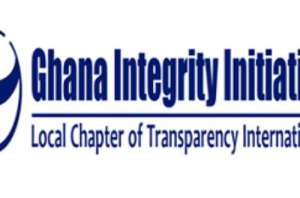
A Corruption Risk Assessment report on the government’s COVID-19 interventions has been launched by the Ghana Integrity Initiatives (GII) which captured views of over 3000 respondents including citizens who were also beneficiaries of the covid-19 interventions, public stakeholders, and the private business.
Mrs. Mary Awelana Addah, GII Programmes Manager who presented the recommendations during the launch explained that the GII Corruption Risk Assessment (CRA) revealed that there was inadequate transparency with regards to the procurement processes related to COVID-19 interventions among the populace.
The launch brought together over 60 participants, of whom 14 were women cutting across all sectors, public, private, civil society, and the media. Ghana Health Service, Ghana Education Service, Ministry of Health, Covid-19 Trust Fund, Ghana Revenue Authority, and Public Procurement Authority were among the institutions that took part.
Some key findings, conclusions, and recommendations from the assessment obtained by the Communication for Development and Advocacy Consult (CDA Consult) indicated that communication on the establishment of the COVID 19-related funds reached 85.52 per cent of the populace during the pandemic, with television and radio being the most effective channels of communication.
She said the finding revealed that about 67.90 per cent of the general populace and targeted institutions (Public sector institutions that were directly involved in the implementation of the interventions) were not aware of any arrangements in place to ensure compliance with the Procurement Act, 2003 (ACT 663).
“This is further compounded by the inadequate publication and accessibility of procurement contracts by the public sector agencies responsible,” Mrs. Addah stated.
According to the report no readily available audit report of the COVID-19 interventions has been conducted or published for public accessibility; although Article 187 (2-5) of the Constitution and Section 21(2)(3) of the COVID-19 Trust Fund supports the conduct of an audit after the financial year.
The report acknowledged that the government has so far undertaken an estimated 20 different support interventions from three main funding sources –National Corona Virus Trust Fund, World Bank, and the Corona Alleviation Programme.
“Of the 20 interventions assessed, eleven have high corruption risks, four have moderate corruption risks and five have low corruption risks.
“Strengthening existing anti-corruption efforts and advocating for measures to mitigate these risks is crucial to ensure that corruption does not become the norm the integrity of public institutions is not compromised and peoples’ trust in these institutions is protected.
“It is also important that the public has confidence in the Government’s ability to mobilise and implement an effective crisis response system, which includes the effective management of the COVID-19 Fund and other relief initiatives, without weakening the integrity of existing public institutions,” the GII report indicated.
Mrs. Linda Ofori-Kwafo, GII Executive Director acknowledged the support of the Centre for International Private Enterprise (CIPE) particularly Ms. Carmen Stanila, who is a Senior Consultant at CIPE, who supported GII during the implementation of the project.
Ms Stanila also made commendation to GII for the work and hoped the recommendations would be considered for implementation to serve as a best practice in similar situations.




 Zuma's party joins S.African opposition alliance
Zuma's party joins S.African opposition alliance
 'NDC thrives on propaganda and illiteracy' — Obiri Boahen
'NDC thrives on propaganda and illiteracy' — Obiri Boahen
 Lawyer Obiri Boahen drops bombshell against African Leaders
Lawyer Obiri Boahen drops bombshell against African Leaders
 V/R: Embrace peace to dispel violent tag on Muslims — Ketu South Chief Imam
V/R: Embrace peace to dispel violent tag on Muslims — Ketu South Chief Imam
 Effutu MCE urges Muslim youth to reject politicians who foment trouble
Effutu MCE urges Muslim youth to reject politicians who foment trouble
 Eid-ul-Adha: Strengthen your faith in Allah for peaceful elections — Northern Re...
Eid-ul-Adha: Strengthen your faith in Allah for peaceful elections — Northern Re...
 Eid-ul-Adha: Let’s all sacrifice for Ghana's progress—Bono Minister urge Ghanaia...
Eid-ul-Adha: Let’s all sacrifice for Ghana's progress—Bono Minister urge Ghanaia...
 Ellembelle Chief Imam urges EC to ensure level playing field for December electi...
Ellembelle Chief Imam urges EC to ensure level playing field for December electi...
 Tema Port receives largest container vessels named Kota Tema
Tema Port receives largest container vessels named Kota Tema
 Akufo-Addo preaches peace as Ghana marks Eid-ul-Adha
Akufo-Addo preaches peace as Ghana marks Eid-ul-Adha
